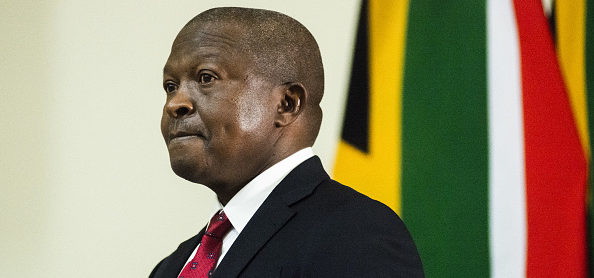South Africa's deputy president David Mabuza on Monday arrived in Juba and is due to meet President Salva Kiir and opposition leader Riek Machar in a bid to break a deadlock over the number of states.
Mabuza's spokeswoman Matshepo Seedat told journalists in Juba that Deputy President David Mabuza, in his capacity as South Africa’s special envoy to South Sudan, came to Juba to hold meetings on the outstanding issues which include the number of states and their boundaries.
The rival parties are expected to resume talks on the number of states and boundaries on Wednesday under mediation of South African deputy president David Mabuza.
“Deputy President is here in Juba to resolve the matter of the states and their boundaries. He will meet with President Salva Kiir and Dr. Riek Machar,” Seedat said.
“Deputy President is here because he is hopeful that there will be a resolution to this contentious matter so that South Sudan can form a unity government by the end of the extended period,” she added.
The press secretary pointed out that the South African deputy president will remain in the capital Juba for four days.
During the consultative meeting of parties that took place from 1 to 4 December 2019, Mr. Mabuza said meaningful progress was made wherein parties moved from their original five divergent positions towards consensus on two positions, which are 23+1 and 32+ states.
President Salva Kiir and SPLM-IO leader Riek Machar last month expressed hope that South Africa’s deputy president David Mabuza could play a big role in bridging their divergent viewpoints.
The rival parties have twice failed to form the unity government, first in May 2019 and then in November the same year, when they agreed to give themselves100 days to resolve disputed issues and form a unity government by 22 February 2020.
Under the terms of the peace deal, the parties are to create a unified army and agree on the number of states and their boundaries.




